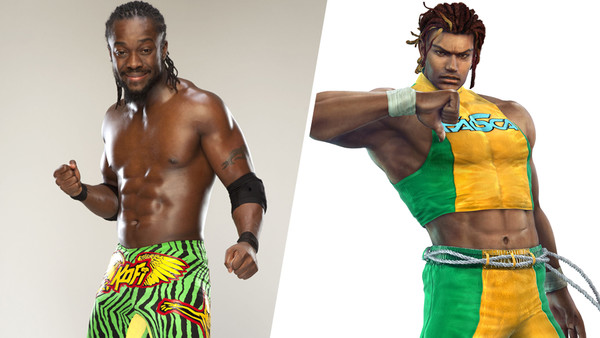9 Wrestling Gimmicks Ripped Off From Video Games
9. Kofi Kingston (Tekken 3)

When Kofi Kingston landed feet-first on a WWE beach in 2006, it was pointedly and admittedly, quite craply emphasised just how Jamaican he was (he wasn't). Kingston presented himself with laconic ease, spoke in a dreadful accent, and even, obviously, danced out to ringside to reggae.
As hokey as it was, this gimmick was not, surprisingly, mandated by WWE, but the brainchild of Kofi himself. Presumably, then, given the schtick was so far removed from his real life persona and background, the Ghanaian's influence derived from a pop culture icon of the Caribbean.
As it happens, it did: Kofi first learned to do his really quite bad Jamaican impression after listening to a Damian Marley tape on the way back from wrestling training. But his actual wrestling style has a very different origin.
Before Namco released their console-busting brawler Tekken 3 in 1997, it's doubtful anybody in the northern hemisphere had ever heard the term 'capoeira'. Thanks to the game's resident cheesemeister of choice, Eddy Gordo, the Afro-Brazilian martial art - as much a dance as a combat skill - was exposed to a massively wider audience.
Kingston was one kid jamming his friends with the almost unblockable Eddy, and when he became a professional wrestler, decided to import several of the break-dance beats into his arsenal.
"I watch a character like Eddy Gordo in 'Tekken' and his capoeira style, and it's characters like that which I like to take from because of how they stand out," Kingston told Sky Sports. After 11 long years of strife, Kingston won WWE's King of Iron Fist Tournament at WrestleMania 35. Sadly, it wasn't long before he met his Heihachi in the form of Brock Lesnar.